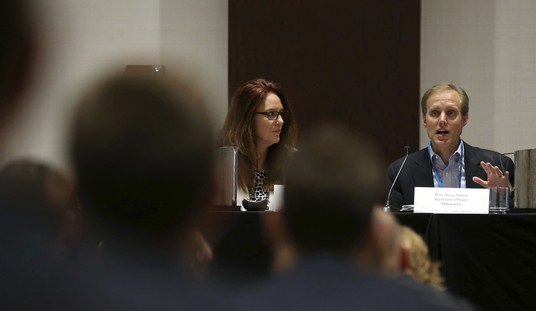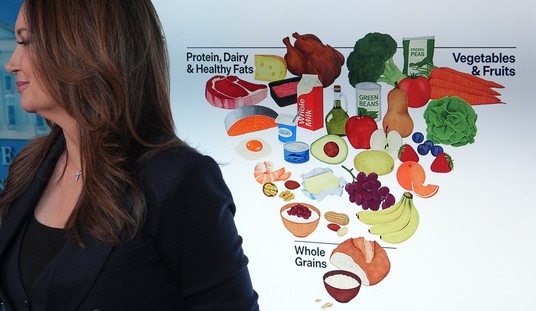Yesterday, Obama left the door open on imposing a new federal sales tax in order to get more revenues to the federal government, reversing previous denials. CNBC notes that Barack Obama’s sudden U-turn on a value-added tax (VAT) has been carefully prepared by subtle changes in his rhetoric on protecting the middle class (emphasis mine):
Obama’s admission came during an interview with CNBC’s John Harwood. Asked if he could see the potential for a VAT, the President said: “I know that there’s been a lot of talk around town lately about the value-added tax. That is something that has worked for some countries. It’s something that would be novel for the United States. And before, you know, I start saying ‘this makes sense or that makes sense,’ I want to get a better picture of what our options are.” Obama’s VAT admission may explain his recent attempts to alter the terms of his central campaign promise. Twice in the past two weeks, Obama has claimed his middle class tax pledge only applied to income taxes rather than “any form of taxes”.
In his April 10 Weekly Radio Address, Obama said: “And one thing we have not done is raise income taxes on families making less than $250,000. That’s another promise we’ve kept.” In a speech on the evening of April 15, Obama repeated the truncated promise: “And one thing we haven’t done is raise income taxes on families making less than $250,000 a year — another promise that we kept.” The two recent statements stand in stark contrast to Obama’s original promise: “I can make a firm pledge. Under my plan, no family making less than $250,000 a year will see any form of tax increase. Not your income tax, not your payroll tax, not your capital gains taxes, not any of your taxes.”
The sudden change is a clear example of the Jim Geraghty Axiom: Every Obama promise has an expiration date — every one. A VAT would rapidly increase costs across the entire spectrum of wage earners, but the middle class would get particularly hard. Usually, a VAT gets accompanied by some sort of subsidies for low-income families, and wealthy families won’t have it hit their disposable income as hard. The middle class will end up carrying the burden of a VAT, the very antithesis of Obama’s promise in 2008.
CNBC’s catch of the rhetorical dancing of Obama shows that the White House is preparing some sort of major change on taxes, and an acknowledgment that the change will hit the middle class. Since they’re apparently defending their position on income taxes, the VAT is the most likely alternative.








Join the conversation as a VIP Member